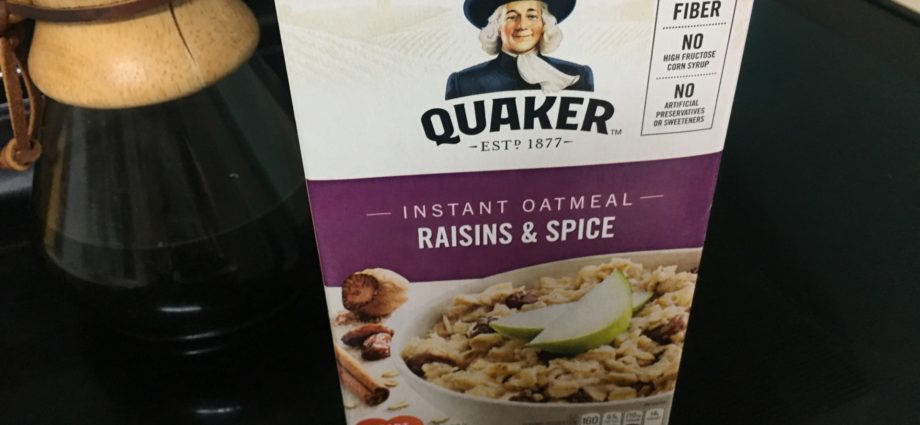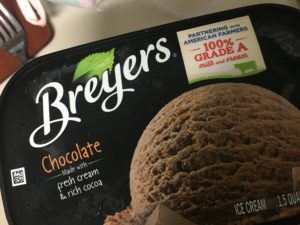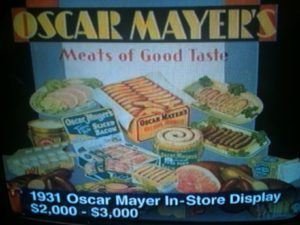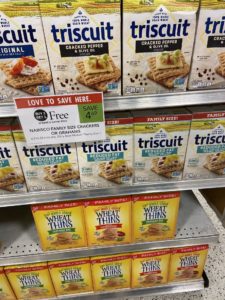 The whole natural food movement has strong roots in religious circles, not only with Kosher food and Mennonite dairies, and natural foods and the Jesus movement of the 70s, but in a new generation of foods and consumer products made on Biblical principles and sold with a religious theme.
The whole natural food movement has strong roots in religious circles, not only with Kosher food and Mennonite dairies, and natural foods and the Jesus movement of the 70s, but in a new generation of foods and consumer products made on Biblical principles and sold with a religious theme.
One of the more influential people in this trend is Joel Salatin’s Polyface farm in Virginia, which has spawned a whole generation of farmers who see environmental farming and Christian principles as one in the same thing. Salatin calls himself a “Christian libertarian environmentalist capitalist lunatic” but in truth he is one of a long line of men, over many millenia, who have worked the land using the Bible as their guidebook.
There are many local versions of this. One can hope that they will develop into well known regional brands, as opposed to just farm names. Back in the early 20th century, most rural towns had local canneries and agriculture brands. Corporate agriculture, OSHA, food fashions and inheritance taxes killed these brands off, but there is always hope that new ones will come back as farmer’s markets, food trucks and local farming continue to capture the attention of the public.
One of the more interesting small local farms is Noah Sanders’ Rora Valley Farms. Sanders lives with his family in Alabama where he manages, what he calls on his blog www.bornagaindirt.com. Sanders believes that God should be honored in farm production, growing crops that honor the Lord. He sees the farming lifestyle as compatible with Biblical principles and calls much of modern agriculture “idolatry.” If you want some inspiration, listen to the interview with Sanders on Moody Radio’s Chris Fabry Live. Sanders’ ideal are old school, and fit if you are liberal or conservative, Christian or “other.”
Coke, Penney, Cadbury
Sanders is the first step. Someone has to grow the food. But our food and consumer product system is all about packaging, branding and distribution, and it is impossible to get everyone to a farm market once a week. Over the years, there have been many brands that have had strongly religious founders; Cadbury chocolate is Quaker; Kellogg is Adventist and Marriott is Mormon. J.C. Penney was a devout Christian, and sought to infuse his principles in his business dealings of fairness, good prices and wholesome products. (Come to think of it, they might well ought to get back to that.)
Of course, a generation ago, much of the U.S. was God fearing, and so to single out a business as Biblical would have been silly. Everyday businessmen acted out of their faith. For instance, Kemmons Wilson of Holiday Inn was a entrepreneurial genius who found true inspiration at Christ United Methodist Church in Memphis. Henry Parsons Crowell, a founder of Quaker Oats, was known for his faith and supported Dwight Moody’s work in Chicago. Asa Candler of Coca-Cola was Methodist who supported Emory. Even today, we can talk about Domino’s and Tom Monaghan’s support of Ave Maria and dozens of other entrepreneurs. We could go on and on.
Here are but six current brands that have New or Old Testament roots that have religious themes; we would love to find others.
- Ezekiel Bread, made by Food For Life. This bread takes as inspiration a passage from Ezekiel, namely the passage 4:9 which has the verse, “Take also unto thee Wheat, and Barley, and beans, and lentils, and millet, and Spelt, and put them in one vessel, and make bread of it…”
- Promised Land milk. This Texas milk company promises that a “taste of Heaven is right around the corner.” They use the passage Deuteronomy 26:9, which says “He has brought us to this place, a land overflowing with milk and honey.”
- Gethsemani Farms cheese and foodstuffs, made by Trappist monks. The company was founded in 1848, when 44 Trappist monks from the Abbey of Melleray in western France made themselves a new home in the hills of central Kentucky. Granted, there are lots of brands of things made by monks and nuns; perhaps that is a category all its own, as these are clergy that have a vocation, rather than lay people who have a God-inspired need to sell something.
- Tom’s of Maine. Tom Tom Chappell happens to have a degree Harvard Divinity School, and is an Episcopalian like myself. Some might not call that overly religious, but he bases all his life decisions on the idea that what he has created belong to the kingdom. The company is now mostly owned by Colgate-Palmolive, but he has started up a company called “Ramblers Way” which promotes U.S. grown and made woolen garments.
- Hain Celestial. This company, which makes so many great organic products, is led by Irwin Simon and specializes in health food, with many kosher products. Founder Irwin Simon is known for his support of Jewish causes.
- Brim’s Snack Foods. The Tennessee company got its start with pork rinds, and moved up. Their slogan is “life is so delicious.” It says that it has a mission statement that affirms:
- Working in harmony in a God honoring, God fearing atmosphere.
- Manufacturing and distributing snack foods that are superior in quality and value to consumers.
- Striving to help our distributors and customers attain their financial goals. “Brim’s Snacks becoming Number 1 in the Memphis Market.”
- Providing customer service to all customers in a professional and courteous manner.
- May our actions and words honor God.
It would be great to compile some other brand names that try to operate on Biblical principles. Help us out by adding some below.









Picked up a bag of cheese popcorn for my kids at dollar tree. Had no idea it was a Christian based company, but while we were eating it we discovered the scripture on the back of the bag. We were so impressed and it was very refreshing to see that! We think it is great that a company would do that in order to spread the gospel..keep up the good work..we will continue to buy your products they’re wonderful and the scripture is an extra special bonus! Thanks for the KJV.. May God Bless!!
Wish we could purchase the scripture popcorn at more stores other than dollar tree, they sell out so quickly.
Thirty-One Gifts
(Proverbs 31)